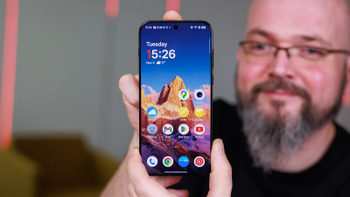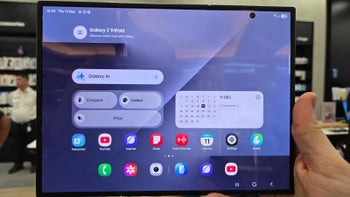Google's Play Store empire under siege

Google's stronghold on the Android app market is facing a serious challenge. A federal judge has signaled a potential overhaul of the Google Play Store, following a jury verdict that declared it an illegal monopoly.
Following the verdict, Judge James Donato is preparing to issue an order mandating several changes. The core issue is Google's near-exclusive control over app distribution and in-app billing on Android devices, a system generating billions in revenue.
The judge has made it clear that the Play Store will need to offer consumers the option to download alternative app stores. This is a direct challenge to Google's dominance and aims to foster competition.
This is a tough nut to crack in the modern age of tech-related legislation. The defense Google has used certainly makes some sense on the surface, as it is easier to ensure a good user experience and a safe environment if there are no third-party app stores in the Play Store. Not to mention that Android users have been able to download third-party from other places for ages.
As the dust settles, one thing is clear: The ripple effects of this case could be felt across the tech industry for years to come. The outcome will have far-reaching implications for the app ecosystem and consumer choice.
However, Google has raised concerns about potential security risks associated with third-party app stores. This was also one of the main points Apple has brought up in similar chargers when explaining why it cannot include third-party app stores in its own App Store.
Google estimates the cost of implementing these changes could reach $600 million. But Judge Donato seems unmoved, emphasizing the need to break down the barriers created by Google's anti-competitive behavior.
While the exact timeline for these changes is still uncertain, the judge has indicated that he expects a framework to be in place before Labor Day, which falls on September 2 in 2024. Google is seeking a longer implementation period between 12-16 months, but the judge seems inclined to expedite the process.
Google estimates the cost of implementing these changes could reach $600 million. But Judge Donato seems unmoved, emphasizing the need to break down the barriers created by Google's anti-competitive behavior.
This is a tough nut to crack in the modern age of tech-related legislation. The defense Google has used certainly makes some sense on the surface, as it is easier to ensure a good user experience and a safe environment if there are no third-party app stores in the Play Store. Not to mention that Android users have been able to download third-party from other places for ages.
However, monopolies are never a sign of a healthy economic environment. They can easily halt progress, which is the exact opposite we want as consumers.
This case could set a precedent for the broader antitrust battle against Google, as similar legal actions are ongoing. The Android ecosystem is on the cusp of a dramatic transformation.
As the dust settles, one thing is clear: The ripple effects of this case could be felt across the tech industry for years to come. The outcome will have far-reaching implications for the app ecosystem and consumer choice.
Follow us on Google News









![A new Android bug is making it impossible to install new apps. Are you affected? [UPDATE]](https://m-cdn.phonearena.com/images/article/176703-wide-two_350/A-new-Android-bug-is-making-it-impossible-to-install-new-apps.-Are-you-affected-UPDATE.webp)



Things that are NOT allowed:
To help keep our community safe and free from spam, we apply temporary limits to newly created accounts: